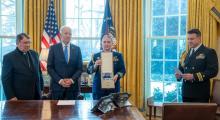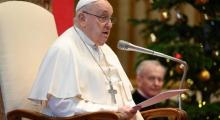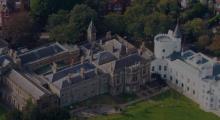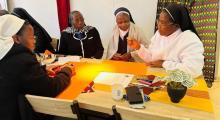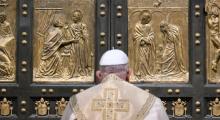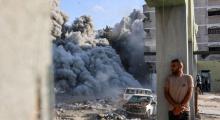Issued by the Catholic Center for Studies and Media - Jordan. Editor-in-chief Fr. Rif'at Bader - موقع أبونا abouna.org
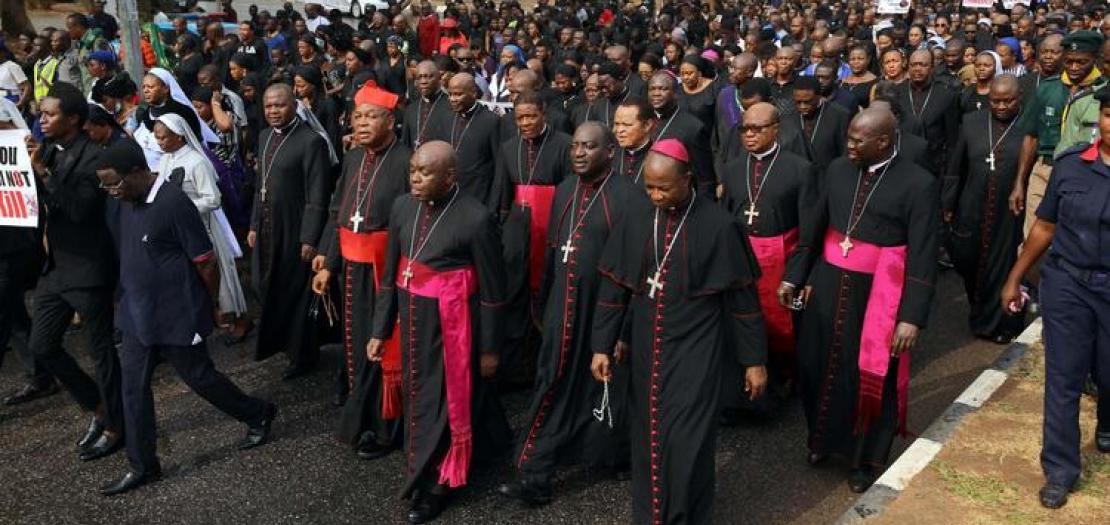
Father Peter Amodu was supposed to say the 5 p.m. Mass at Holy Ghost Parish in southern Nigeria on July 6.
He never arrived.
Gunmen kidnapped the Catholic priest as he walked to the church along the Otukpo/Ugbokolo highway in Benue State. He was released unharmed four days later, the chancellor of the Diocese of Oktupo confirmed.
Amodu’s abduction was no isolated crime. He is one of at least 18 Nigerian Catholic priests kidnapped since the beginning of this year, according to a tally by Aid to the Church in Need (ACN), a Catholic nonprofit organization. Three of the priests were killed.
More troubling, the kidnappings seem to be escalating. There were five priests abducted in Nigeria in the first week of July alone, ACN noted.
The alarming trend begs the question: Why are Catholic priests being targeted in this way?
Clergy and security experts who spoke to CNA provided a range of answers.
Bishop Jude Arogundade of Ondo, in southwestern Nigeria, where still-unapprended gunmen on June 4 killed at least 40 people attending a Pentecost Mass in Owo, believes that the Catholic Church in Nigeria is both a threat and a strategic target for radicalized Muslim Fulani herdsmen and Islamic terror groups using violence to destabilize Nigeria.
“The Catholic priests represent an international institution with a prominent message that challenges the message of terrorists,” Arogundade told CNA.
Because of the Church’s worldwide prominence and structure, an attack in even the most obscure locations guarantees the international media attention that terrorists want, he noted.
At the same time, priests represent a political threat to Islamic extremists, observed Father Andre Mahanna, president of Saint Rafka Mission of Hope and Mercy, a religious liberty advocacy group based in Lakewood, Colorado.
He believes priests are being singled out because they are educating their congregations about their civil rights.
“The priests are being targeted, silenced, kidnapped, burned alive, and killed because they are educating the people that they need to build their nation by deciding their own fate based on the Judeo-Christian principles of law, justice, property rights, faith, family, and freedom,” Mahanna said an interview with CNA during the recent International Religious Freedom Summit in Washington, D.C.
“The pastors and priests are an organic, grass-rooted, and natural voice of leadership in a civil rights movement that is grounded in the Gospel of Liberty of the Children of God,” Mahanna explained.
There also are more pragmatic, monetary reasons in play, others say.
Security expert David Otto, director of the Geneva Centre for Africa Security and Strategic Studies, based in Geneva, Switzerland, said the consensus of security experts in his group is that the Catholic Church is being targeted because it has has been paying the steep ransoms the terrorists have demanded, which can be as high as $200,000 or more.
“It’s the simple reason, because the bandits are all about money,” Otto said.
Some priests are returned within a day — as happened in the case of Father Emmanuel Silas, taken from his residence before daylight on July 4, according to a notice from the Chancellor of the Archdiocese of Kafanchan.
Bishop Matthew Ndagoso of Kaduna points to another factor contributing to the attacks on priests: inept law enforcement. Both Ndagoso and Arogundade, of the Ondo diocese, have been outspoken in their criticism of Nigerian President Muhammadu Buhari and his security agencies for not doing enough to stop the wave of violence targeting Christians in the country.
“The President is the Commander-in-Chief, and he has people working under him, and yet nobody has been made to account for the atrocities going on,” Ndagoso said.
“People are not being held responsible for their failures, despite the huge sums of money approved for security,” he said.
Ndagoso spoke to CNA on the day he celebrated the funeral Mass for Father Vitus Borogo. The 50-year-old priest, who served as the Catholic chaplain of Kaduna State Polytechnic, was shot and killed at a prison farm in Kujama, along Kaduna-Kachia Road, on June 25, according to the Archdiocese of Kaduna.
Borogo’s younger brother was kidnapped the same day and has not been released.
“Those assigned with the responsibility of securing our country must tell us why they have failed,” the archbishop said.
You can unsubscribe from these communications at any time. For more information on how to unsubscribe, our privacy practices, and how we are committed to protecting and respecting your privacy, please review our Privacy Policy.
“So many of my parishioners have been kidnapped, that I can longer count. So many and every day,” he said.
Some priests have been rescued by security teams. Father Peter Udo and Father Philemon Oboh, both of the Uromi diocese, were kidnapped July 2 in Edo, 400 miles south of Kaduna, then snatched back from kidnappers in the early hours of July 6 and brought to the Edo State Government House, where they were received by the acting Governor, Philip Shaibu.
On July 11, the Nigerian Diocesan Catholic Priests Association issued a statement about the attacks, saying, “it is really sad that in the course of their normal pastoral activities, priests have become an endangered species.”
“Attempts have been made at various levels to cry to the government” the association said, “but as already observed by the Catholic Bishops Conference of Nigeria, ‘it is clear to the nation that [the Government] has failed in [its] primary duty of protecting the lives of the Nigerian citizens.’”
In the statement, the priests association asked priests to observe a week of prayer, fasting, Eucharistic adoration, and recitation of the rosary to help them in their ministry despite the dangerous security situation, ACN reported.
“We humbly appeal to all priests to take it very seriously without neglecting other regulations and related recommendations in their various dioceses,” the association said.


